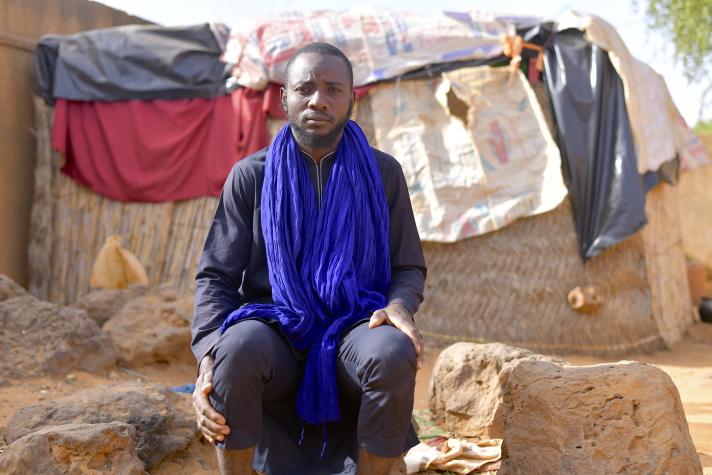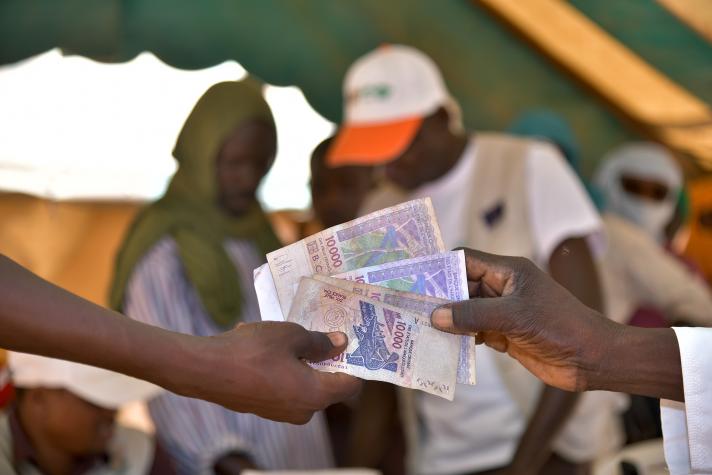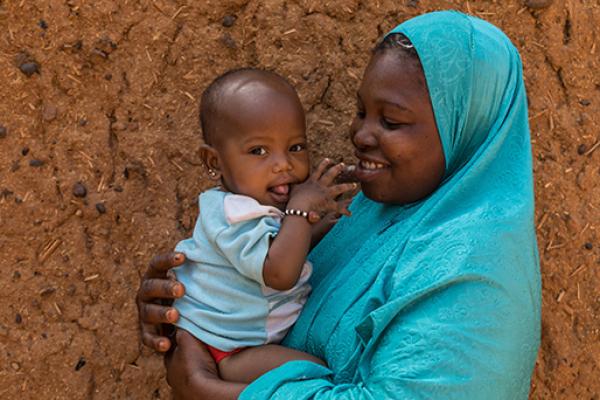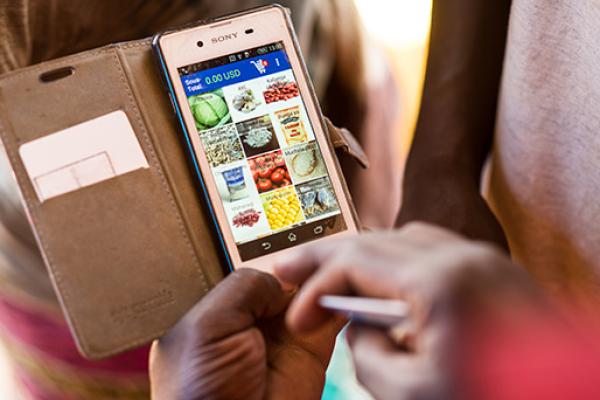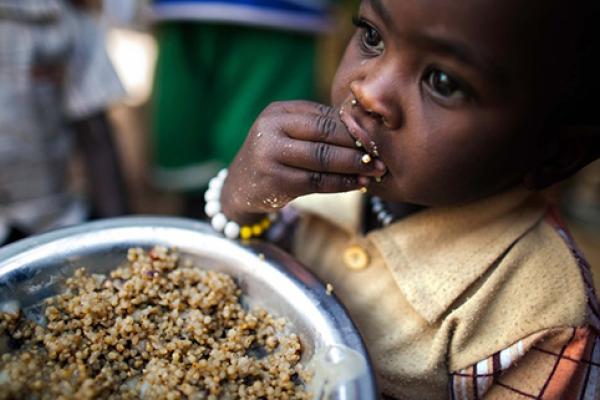Niger continues to suffer significant humanitarian needs due to conflict, displacement, food insecurity, child malnutrition, and epidemics. The multi-faceted shocks in conflict-affected areas of Niger, notably Tahoua, Tillabéri, and Maradi, have had a severe impact on local, already destitute populations.
Through our partner, Concern Worldwide, the European Union (EU) has been providing support to the most vulnerable members of the community with initiatives such as cash transfers, flour distributions and cooking demonstrations.
‘The last lean season was too hard; we lacked everything. There were no building sites in or around the village to work on,’ explains Laouali Andillo, a Nigerian labourer and father of 3, who is struggling to make ends meet, despite trying to earn additional income by selling dead wood during the lean season.
Farming is the main source of income for people living in villages, but extreme conditions – particularly during the lean season from June to September – have left people like Laouali unable to meet their basic needs. During the 2023 lean season, around 3.3 million people were food insecure.
The EU is one of the leading humanitarian donors in Niger, providing life-saving emergency aid to people in need. In 2023, the EU allocated €42 million in humanitarian aid to support people in regions affected by conflict, epidemics, food shortages, and undernourishment among children.
Cash aid is an essential lifeline for families facing a food crisis. EU-funded cash assistance was the breath of fresh air that saved Laouali and other households like his during the difficult lean season. ‘With the amount received, I could buy a sack of millet, sorghum, condiments and drinking water,’ he explains. ‘This allowed me to cover my household's food needs for a month,’ he adds.
He now smiles….
The EU's partnership with Concern Worldwide has also focused on distributing fortified flour to households with malnourished children or children at risk of malnutrition, to help them get back on their feet.
During distributions, cooking demonstrations are organised to help families make the best use of this essential ingredient.
Fortified flour is all the more vital in times of food crisis, as it is a protein- and energy-rich food, which helps prevent child malnutrition.
Alimatou, mother of 3 children, one of whom has been saved from malnutrition by the nutritional benefits of the flour distributed, agrees: ‘At the first cash distribution, I received 6 kilos of enriched flour and was told how to prepare it for my 10-month-old child, who was suffering from malnutrition at the time.’
She received the flour in addition to the cash transfers and was thrilled to see her son thrive. ‘I noticed that he is doing better these days. He now eats well and smiles to his brothers and sisters,’ she adds with a warm smile.
In 2023, 4.3 million people in Niger, about 17% of the population – more than half of them children – needed humanitarian assistance.
The EU continues to support partners in Niger and other Sahelian countries to help the weakest and most vulnerable families overcome food shortages.

